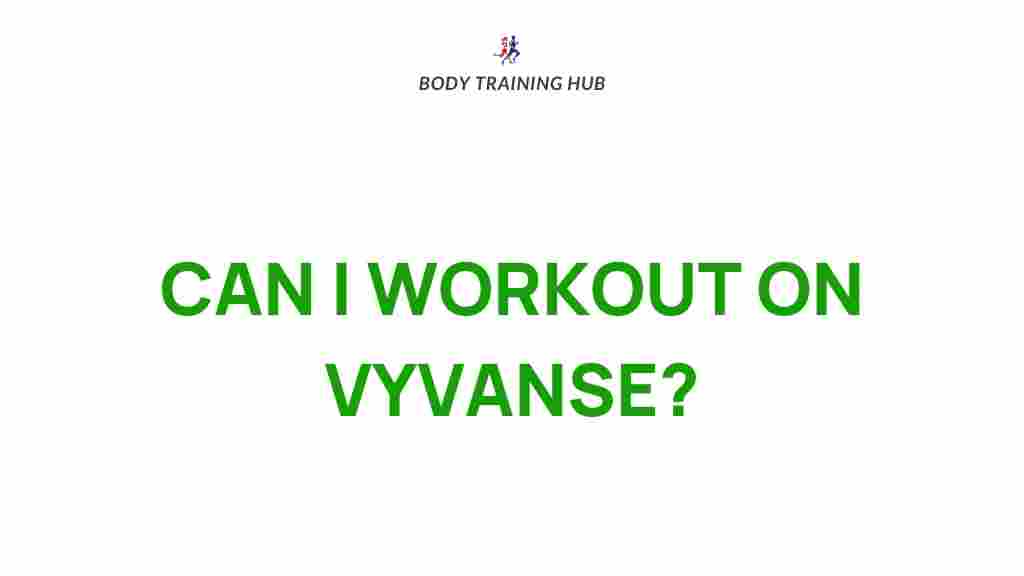The Impact of Vyvanse on Workout Performance
In the realm of fitness and performance enhancement, many substances spark curiosity due to their potential to amplify focus, energy, and endurance. Among these is Vyvanse, a prescription medication primarily used to treat ADHD and binge-eating disorder. Its stimulating properties have led individuals to explore its possible effects on workout routines. But how does it influence your exercise performance, and is it safe to use? Let’s delve into the impact of Vyvanse on workout performance.
Understanding Vyvanse: What Is It?
Vyvanse is a brand-name medication with the active ingredient lisdexamfetamine. It belongs to the class of stimulant drugs, which affect neurotransmitters in the brain. By enhancing dopamine and norepinephrine levels, Vyvanse helps improve focus, attention, and alertness. These qualities make it highly effective for treating conditions like ADHD.
However, its stimulant properties have also piqued interest among fitness enthusiasts seeking to optimize their workout performance. Before diving into its effects, it’s crucial to understand the science behind its functionality.
How Vyvanse Influences Workout Performance
Many individuals have reported experiencing increased focus, energy, and motivation while on Vyvanse, which can translate to better performance during workouts. Here are some key ways Vyvanse may impact your exercise routine:
- Enhanced Focus: Vyvanse can help you stay mentally engaged during complex or repetitive workout routines.
- Increased Energy Levels: The stimulant properties might boost your stamina and delay fatigue.
- Improved Endurance: With heightened motivation, users may push through intense training sessions more effectively.
- Appetite Suppression: This could indirectly affect your diet and weight management, which are critical for fitness goals.
Despite these benefits, using Vyvanse for workouts requires caution. Its effects vary significantly among individuals, and misuse may lead to adverse consequences.
Potential Risks and Side Effects
While Vyvanse may offer some benefits, it’s essential to be aware of the potential risks and side effects:
- Increased Heart Rate and Blood Pressure: Stimulants like Vyvanse can strain your cardiovascular system, especially during high-intensity exercise.
- Risk of Dehydration: Stimulants can reduce hydration levels, which is critical for optimal performance and recovery.
- Dependency and Misuse: Using Vyvanse without a prescription or exceeding recommended doses can lead to dependence.
- Reduced Appetite: While this might seem beneficial for weight loss, it could also result in inadequate nutritional intake.
Always consult a healthcare professional before considering Vyvanse for workout purposes.
Optimizing Workouts While Using Vyvanse
If you’re prescribed Vyvanse and wish to incorporate it into your workout routine, here are some tips to do so safely and effectively:
- Start Slow: Monitor how your body reacts to Vyvanse during light exercise before attempting intense workouts.
- Stay Hydrated: Drink plenty of water to counteract potential dehydration caused by the stimulant effects.
- Listen to Your Body: Avoid pushing yourself too hard, especially if you notice symptoms like dizziness, shortness of breath, or excessive fatigue.
- Eat Balanced Meals: Ensure your diet provides adequate nutrients to support your energy demands and recovery.
- Consult Your Doctor: Discuss your fitness goals with your healthcare provider to align them with your prescription.
Common Misconceptions About Vyvanse in Fitness
There are several misconceptions about Vyvanse and its role in fitness:
- “Vyvanse is a magic performance booster.” While it may enhance focus and energy, it doesn’t replace proper training or nutrition.
- “It’s safe for everyone.” Vyvanse is a prescription medication with specific indications and may not suit everyone.
- “You can use it for weight loss.” Weight loss resulting from appetite suppression is not a healthy or sustainable approach.
Understanding the facts can help you make informed decisions about using Vyvanse for workouts.
Alternatives to Vyvanse for Enhanced Workout Performance
If you’re seeking to improve your workout performance without using Vyvanse, consider these natural alternatives:
- Pre-Workout Supplements: Many contain caffeine and other ingredients to boost energy and focus.
- Regular Sleep: Quality sleep is crucial for optimal physical and mental performance.
- Balanced Nutrition: Consuming the right balance of carbs, proteins, and fats fuels your body effectively.
- Mindfulness Techniques: Practices like meditation can improve focus and reduce stress, enhancing workout quality.
These alternatives can help you achieve your fitness goals without the risks associated with prescription stimulants.
What the Experts Say
Many fitness and healthcare professionals emphasize the importance of caution when considering substances like Vyvanse for non-medical purposes. While it may offer temporary benefits, relying on lifestyle changes and proper training is often a more sustainable approach. For more information, you can read expert opinions on Healthline.
Conclusion
Vyvanse can influence workout performance by enhancing focus, energy, and motivation. However, its use carries risks, especially when not prescribed or used improperly. Before incorporating Vyvanse into your fitness routine, it’s essential to weigh the benefits against potential side effects and consult with a healthcare professional.
For those seeking long-term fitness success, consider alternatives like proper nutrition, sleep, and mindfulness techniques. Learn more about effective workout strategies on our blog to optimize your performance naturally.
This article is in the category Training Guides and created by BodyTraining Team
